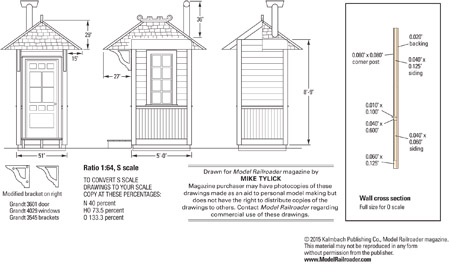
Click on the image to download the plans. Before the invention of automatic crossing gates, railroad crossing guards protected grade crossings. Usually holding a flag, lantern, or stop sign or operating a manual crossing gate, the crossing guard would warn motorists of an approaching train. A simple wooden shanty provided shelter for the crossing guard. […]
Read More…

I learned about the LV’s former Bloomsbury depot when researching the railroad’s other wooden depots in Upstate New York. Information came from the Lehigh Valley RR home page (www.lvrr.com). The appearance of the building interested me, and this warranted a special trip to measure and photograph it. When I visited, the building was an Agway […]
Read More…
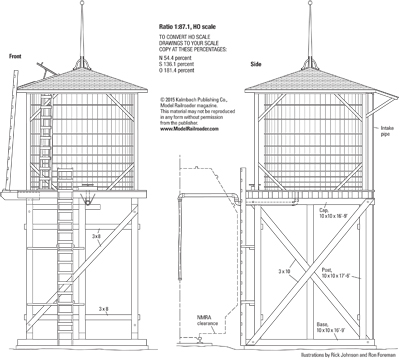
Author Rob Foreman described how he scratchbuilt an 1870s-era railroad water tower from stripwood and styrene in the August 2015 Model Railroader. Get inspired to try a scratchbuilding project on your model railroad. […]
Read More…
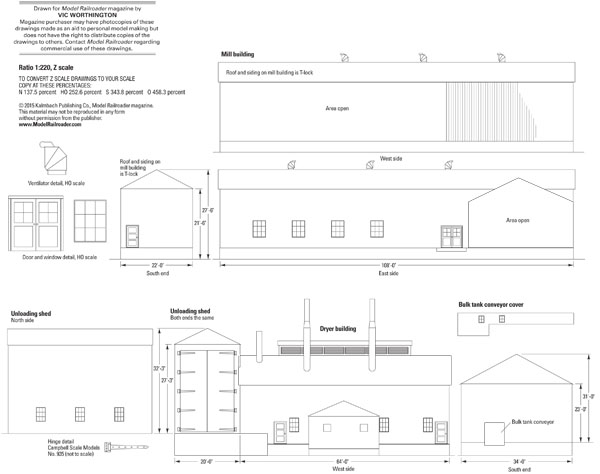
Vic Worthington built an impressive HO scale model of the Clay Spur bentonite plant that’s featured in the July 2015 Model Railroader. Bentonite is an absorbent clay that’s used in many industrial and consumer products and is often transported by rail. […]
Read More…
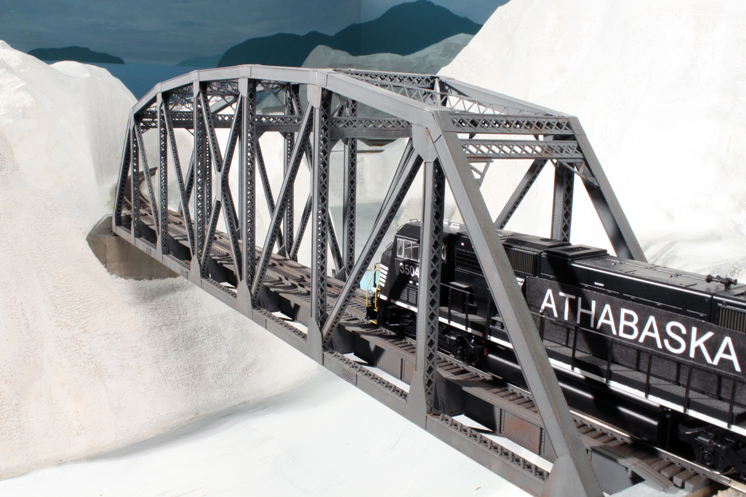
Download plans to build this impressive arch through-truss bridge for a model railroad. Jim Richards Learn how author Jim Richards “scratchbashed” this arch through-truss bridge in the June Model Railroader. Click on the link below to download the assembly diagram that Jim used for the project. Arch through-truss bridge model assembly diagram […]
Read More…
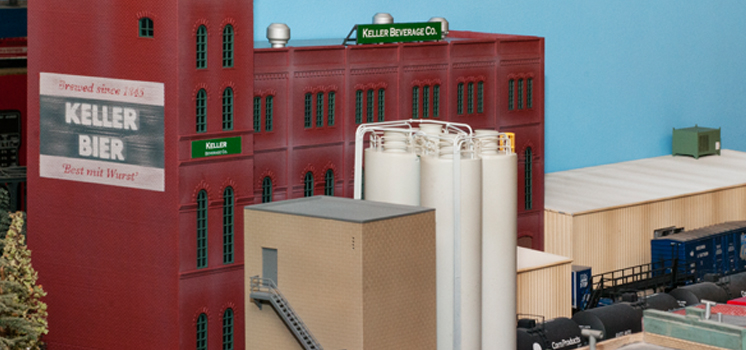
Download signs for Keller Bier and Keller Beverage Co. to use on your model train layout. In the June 2015 Step by Step column, associate editor Cody Grivno shows how to model signs on large model railroad industries. He uses the Keller Beverage Co. on the Model Railroader staff’s club model train layout, the Milwaukee, […]
Read More…
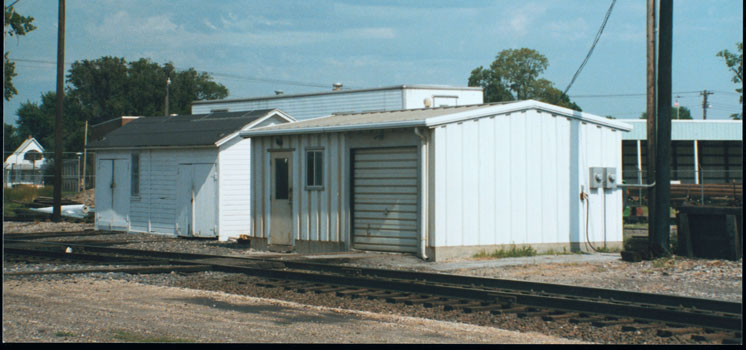
Railroad MOW sheds make easy scratchbuilding projects for a model railroad. In the article “A tale of two sheds” author Harold W. Russell describes two prototype railroad maintenance-of-way (MOW) sheds and includes scale drawings. Use the drawings and the article as a basis for a scratchbuilding project on your model railroad. Prototype drawings: Railroad MOW […]
Read More…
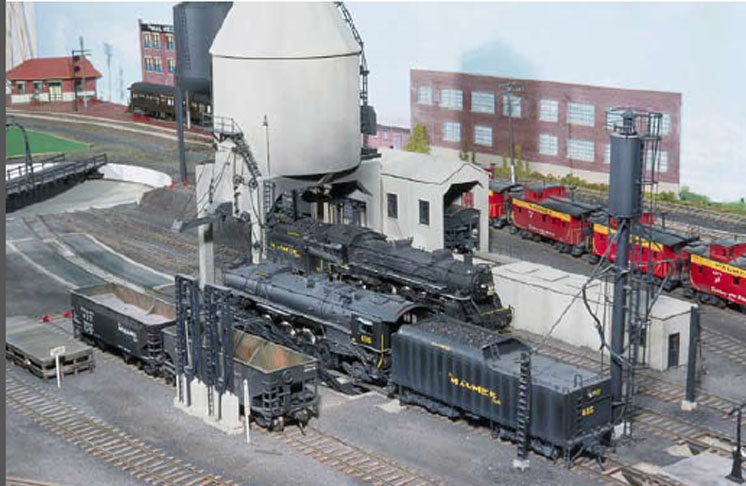
Originally published in Great Model Railroads 2007, this article by Bill Darnaby follows a way freight as it works its way eastbound on Bill’s HO scale Maumee Route. You’ll find a track plan and description of the operation of each town along train No. 20’s route. Follow a model train along the HO scale Maumee […]
Read More…
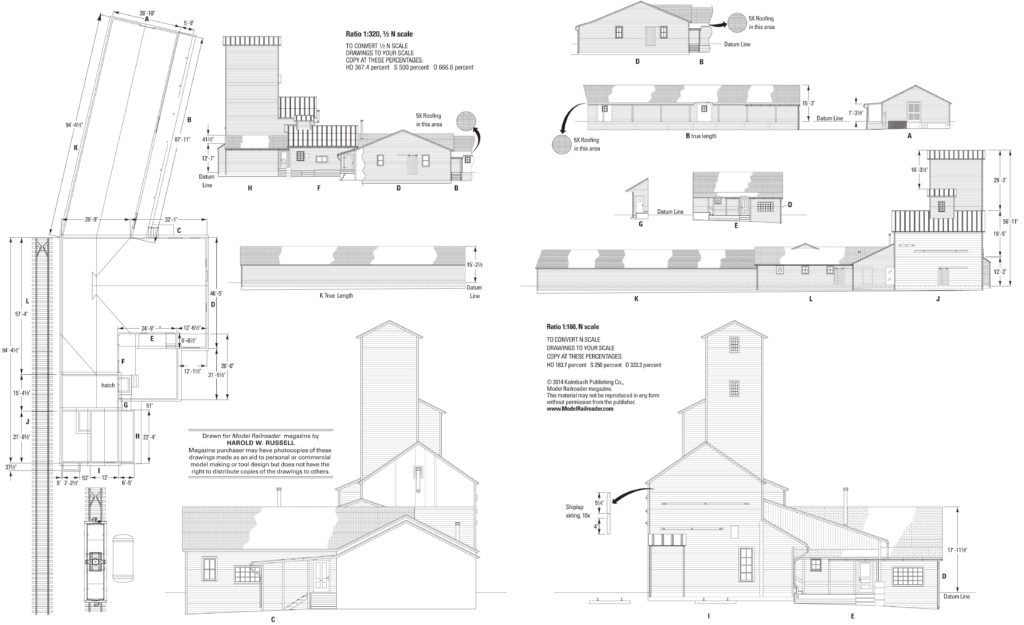
W. Case Benham Elevator Feed mills, which often included a towering grain elevator, were once a common sight along the rails of small-town America. These utilitarian structures feature a variety of building materials as well as a mish-mash of add-on loading docks, sheds, and other outbuildings. This translates into a great modeling opportunity and a […]
Read More…
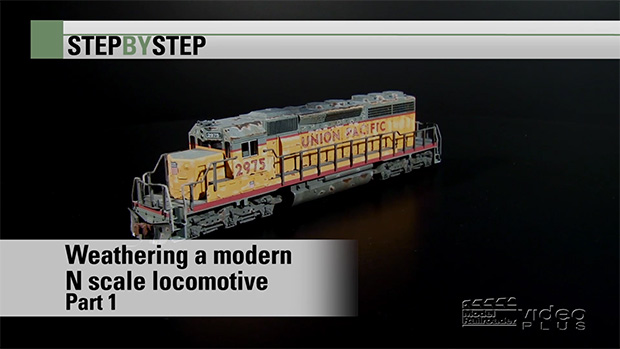
In this installment of Video Step by Step, Cody Grivno shows you how to model a weather-beaten modern diesel locomotive using acrylic paints. In part 1 of 2, he covers how to disassemble the N scale model, prep it for painting, and apply the characteristic deteriorating paint patches. […]
Read More…
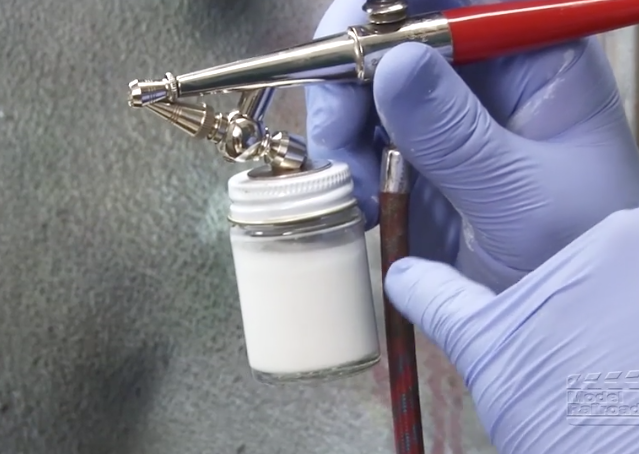
Having trouble viewing this video? Please visit our Video FAQ page This is part 2 of the Video Step by Step covering how to add weathering effects to an N scale diesel locomotive. Cody Grivno shares techniques for applying rust patches and soot effects, painting the trucks, fuel tank, and underframe, blending the various […]
Read More…
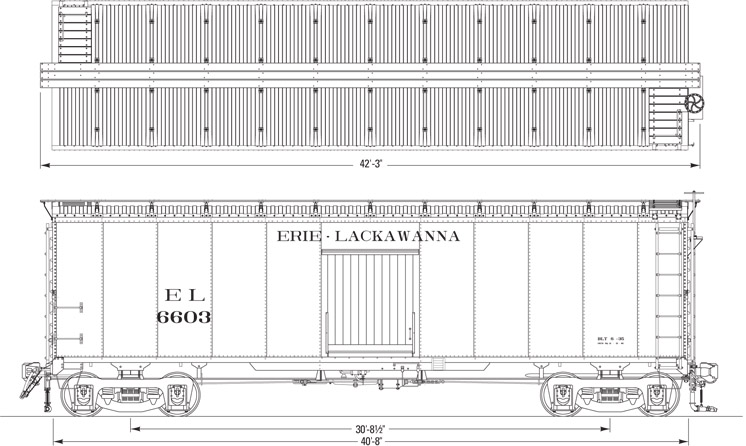
The Rochester and Genesee Valley Railroad Museum near Rochester, N.Y., took delivery of an Erie-Lackawanna RR steel-bodied milk car, no. 6603, in 1987. It was built by the Greenville Steel Car Co. for the Erie RR in June 1935. At first glance, the car looks like a standard steel refrigerator car. But since it was […]
Read More…












